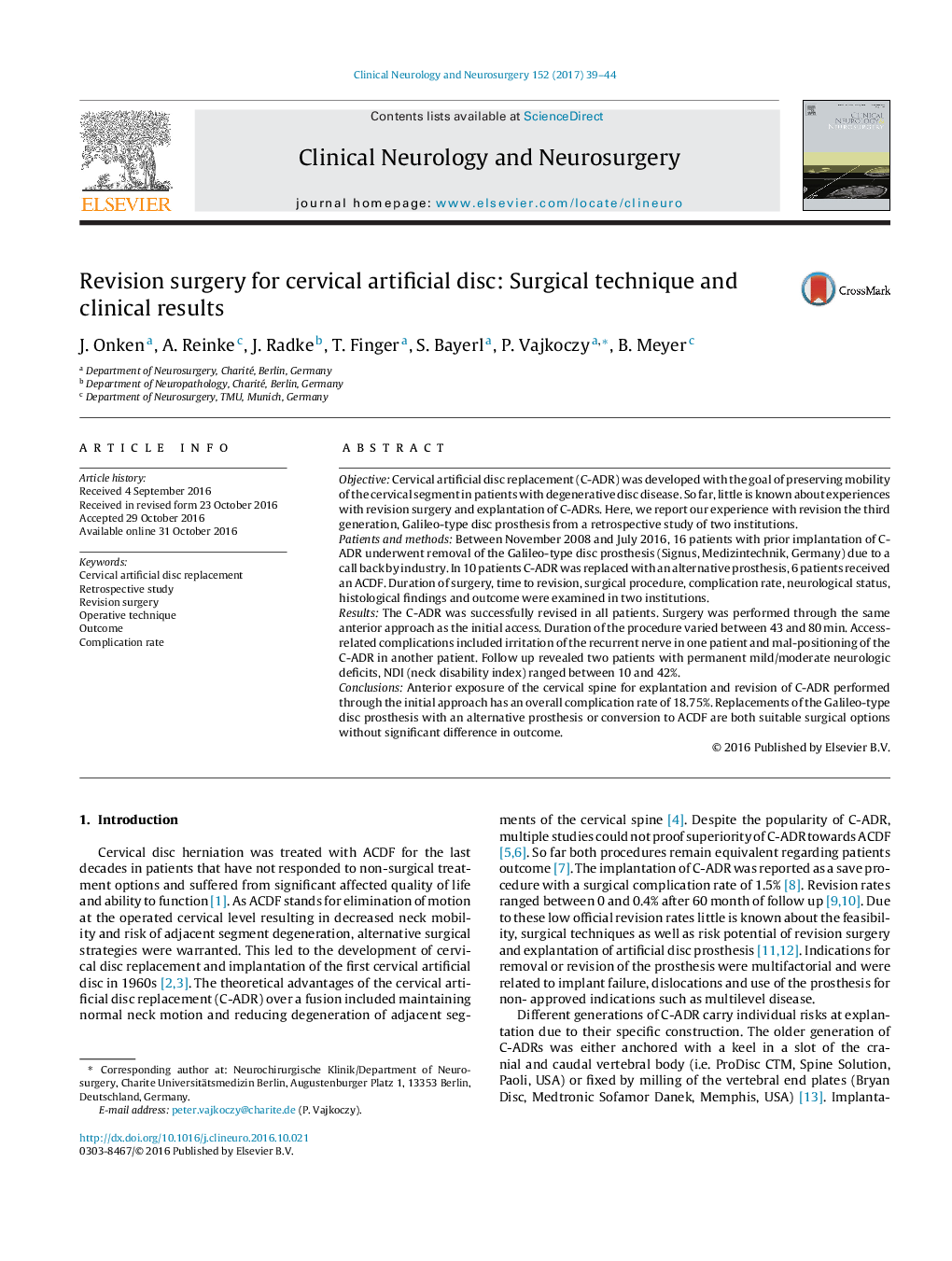| Article ID | Journal | Published Year | Pages | File Type |
|---|---|---|---|---|
| 5627033 | Clinical Neurology and Neurosurgery | 2017 | 6 Pages |
â¢Technique of revision surgery in third generation C-ADR is proposed.â¢The complication rate of 18.75% in C-ADR revision surgery is a relevant issue.â¢ACDF and C-ADR are both suitable surgical options after explantation of a C-ADR.
ObjectiveCervical artificial disc replacement (C-ADR) was developed with the goal of preserving mobility of the cervical segment in patients with degenerative disc disease. So far, little is known about experiences with revision surgery and explantation of C-ADRs. Here, we report our experience with revision the third generation, Galileo-type disc prosthesis from a retrospective study of two institutions.Patients and methodsBetween November 2008 and July 2016, 16 patients with prior implantation of C-ADR underwent removal of the Galileo-type disc prosthesis (Signus, Medizintechnik, Germany) due to a call back by industry. In 10 patients C-ADR was replaced with an alternative prosthesis, 6 patients received an ACDF. Duration of surgery, time to revision, surgical procedure, complication rate, neurological status, histological findings and outcome were examined in two institutions.ResultsThe C-ADR was successfully revised in all patients. Surgery was performed through the same anterior approach as the initial access. Duration of the procedure varied between 43 and 80Â min. Access-related complications included irritation of the recurrent nerve in one patient and mal-positioning of the C-ADR in another patient. Follow up revealed two patients with permanent mild/moderate neurologic deficits, NDI (neck disability index) ranged between 10 and 42%.ConclusionsAnterior exposure of the cervical spine for explantation and revision of C-ADR performed through the initial approach has an overall complication rate of 18.75%. Replacements of the Galileo-type disc prosthesis with an alternative prosthesis or conversion to ACDF are both suitable surgical options without significant difference in outcome.
